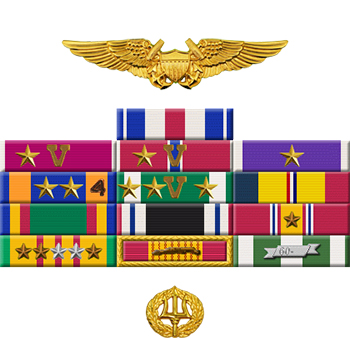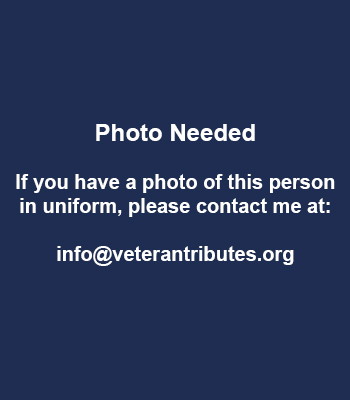
|
Timothy B. "Tim" Sullivan |
 |
|||
| Rank, Service | ||||
Commander O-5, U.S. Navy |
||||
| Veteran of: | ||||
|
||||
| Tribute: | ||||
Tim Sullivan was born on October 2, 1943, in Springfield, Massachusetts. He was commissioned an Ensign in the U.S. Navy through the Navy ROTC program on June 9, 1965, and then attended helicopter training with Helicopter Training Squadron EIGHT (HT-8) at NAS Whiting Field, Florida, from June to August 1965. Ensign Sullivan next transferred to NAS Pensacola, Florida, for Naval Flight Officer training in August 1965, followed by Radar Intercept Officer (RIO) training at NAS Glynco, Georgia, from April to July 1966. He attended F-4 Phantom II Fleet Replacement Squadron training with Fighter Squadron 121 (VF-121) at NAS Miramar, California, from July 1966 to January 1967, and then served as an F-4 RIO with VF-151 at NAS Miramar from January to March 1967. LtJg Sullivan deployed with VF-151 aboard the aircraft carrier USS Coral Sea (CVA-43) in March 1967 for combat operations in Southeast Asia, and he was forced to eject from his stricken aircraft over North Vietnam and was taken as a Prisoner of War on November 16, 1967. After spending 1,946 days in captivity, LT Sullivan was released during Operation Homecoming on March 14, 1973. He was briefly hospitalized to recover from his injuries, and then left active duty on November 9, 1973, serving with the Navy Reserve at NAS South Weymouth, Massachusetts from November 10, 1973, until he returned to active duty on February 7, 1983. Commander Sullivan served as Officer in Charge assignment to Fleet Aviation Specialized Operational Training Group, Atlanta Fleet, at NAS Brunswick, Maine, from February 1983 until his retirement from the Navy on February 1, 1995. During this time he served as Officer in Charge of the U.S. Navy Survival, Evasion, Resistance and Escape (SERE) School at NAS Brunswick for his last 12 years on active duty. |
||||
|
||||

